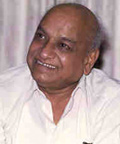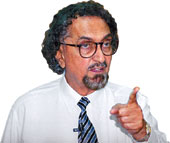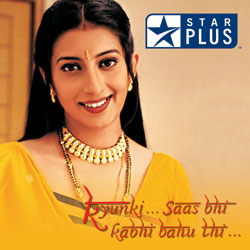
TYRANNY OF MEDIA: SELF REGULATION A MYTH
Author - VT Joshi

|
TYRANNY OF MEDIA: SELF REGULATION A MYTH
|
"Like doctors and lawyers journalists should have statutory registration. There is no shame in it. If doctors and lawyers have a licence why not journalists?" This stunning suggestion came 62 years ago from an eminent editor-journalist, the late Mr. K. Rama Rao, in an address to an Andhra journalist conclave. It is instructive to note a couple of paragraphs from his address that is of considerable relevance today, as reproduced here (1944). He said: "An eminent journalist recently pointed out that journalism in India has ceased to be a calling and become trade. So far as proprietors are concerned, it is a well-organized industry, but it is not a well-organized profession, even so far as the men who produce newspapers are concerned. If the ideal that the best newspaper should be owned by its own readers cannot be realized……we must at least attempt, those who own and those who work, to adjust our angles and approaches, in common interest….…The profit motive (has become) rather deep rooted in the mind of the proprietors..…..Skilled labour is the basis of trade unionism. You can regulate (entry) only on the test of skill".
These observations were made a couple of years before Independence when almost the entire nationalist press was part of the national struggle for freedom. It shows that the situation, none-too-happy then, has worsened since, particularly with advent of the electronic media.
Left to itself, the electronic media will reduce Kalidas to Khushwant Singh and Meerabai to Shobhaa De. This profound observation, made by a well known journalist-editor, Mr. Prabhash Joshi, at a media university meeting sometime back, underlines the seamy side of the media. It may sound a trifle exaggerated but it is the quintessential truth of the state of the media today. Both of the electronic and its forerunner, the print media, which has become an apology for tabloids -- with few honourable exceptions. The term 'media' itself is the plural of 'medium' but, rightly or otherwise, has come to mean a collective noun for the entire press, the printed word as well as its electronic variety, the ubiquitous idiot box.
The proliferation of 24-hour news and entertainment channels, started by all and sundry from Rupert Murdoch to babulal panwala, is a pain in the neck. With their tireless reiteration of the trite, these channels revel in highly dramatized presentation of sex and crime stories, sensationalizing senseless minor incidents, often strewn with unrelated, salacious visuals culled from old clips. Of late the use of "hidden cameras" is a new craze in stage managed shows and making tall claims of investigative journalism. Most of the news channels relegate major national events of importance to secondary or even tertiary position. Doordarshan seems to be the only exception, but it is also gradually falling in line.
It is strange that terms like dress code, regulation, control, (much less 'remote control', 'censorship' etc.) have become dirty words in the lexicon of even eminent editors like Vinod Mehta as much as of the show business stalwarts like Mahesh Bhat. Both profess to be unrelenting champions of freedom of expression, freedom of art, freedom of the press -- indeed in defense of absolute unbridled freedom in everything.
CRY IN THE WILDERNESS
A code for self-regulation of print and electronic media has long been a cry in the wilderness. In the fiercely competitive world of liberalization and globalization it is foolish to expect voluntary restraint from the media. The media barons, addicted to making pots of money through crass commercial ventures at the expense of social harmony and welfare, and public decency and morality, will never respond positively to the calls of self-regulation. The only remedy lies in a powerful popular movement to re-instill a modicum of sanity and obviate obscene displays. Not through violent methods adopted by Bajrang Dal, Shiv Sena, VHP or Yaqoob Khan, but by millions writing a constant barrage of protests to the bigwigs in the various channels and show business, as also by non-political public organizations. Most urgently needed is for an all powerful Media Council to replace the toothless Press Council and an empowered autonomous regulatory mechanism. It is deplorable how the incipient Broadcast Bill, still in the womb, has provoked sharp criticism mostly from professionals backed by entrenched commercial interests.
"BARE BOSOM" CULTURE"

The state of the self-styled entertainment channels, blighted by films dominating the television, is even worse. Vulgarity seems to be the new passport to wealth and fame. It is a cruel joke that the likes of scarcely clad Rekha Sawant or Mallika Sherawat protest --- and protest too much!

No less than the Advertisement Guru, indeed a demi-god of the Ad-circuit, Alyque Padamsee, has called for a ban on rape scenes in films and TV shows. Notorious for his ultra liberal views, even Padamsee is outraged obviously because of their inevitable baneful impact on young formative minds as much as on adults and adolescents who constitute a large chunk of viewers. The danger of teen-age pregnancy looms large and stares some of them in the face.
Most of the TV shows revel in spreading the semi-nude "bare bosom" culture. Add to it the fashion parades and ramp shows exhibiting models wearing little or no clothes – paradoxically to advertise designers who seem to be averse to all kinds of clothing. It is only doordarshan which presents its female anchors in decent dress. Unlike most other private channels which seem to promote what may be called the "banyan–coat" dress code to their anchors and newsreaders of the fair sex which in any case proliferates all over the television these days.
LETHAL SERIALS
It is indeed gratifying therefore that the Madhya Pradesh State Women's Commission has decided, in coordination with its counterparts in other parts of the country, to take up cudgels against some of them, particularly the so-called 'family serials'.

One wonders what is so great of about these lethal serials that have come to be known as the "K—Series" -- of Ekta Kapoor fame! They have gone on and on for years, trotting out the same morbid themes of family drama. They have not only portrayed women as "conspirators and villains", demeaning their dignity as a class of humans, but have also wilfully done their worst to jeopardize the hallowed concept of family life in the Indian society, the Commission rightly feels. However when actually it will launch its laudable agitation is still a moot question. Its scheduled meeting was unexpectedly postponed. The reason: Its secretary was suddenly transferred on the eve of the meeting! The Commission will hopefully summon courage to resist and overcome many odds it is bound to face.
Name any of the sickly serials -- Kasauti, Kyunki sas bhi bahu thi, etc. It is the same staple diet: Fomenting domestic discord, disrupting families, extolling promiscuity and infidelity, glorifying murder and mayhem, credulously reviving the "dead" characters of the story; forlorn melancholy memories ad nauseam; tireless repetition of gory scenes of accidents, police stations, court rooms; luxurious partying on the pretext of performing poojas or celebrating festivals, with a generous sprinkling of semi-nude females; parading fleets of limousines and flaunting an endless supply of money. All topped by pretentious, sterile, stereotype dialogues with copious crocodile tears. Each episode gives the impression that the producer is groping in the dark to prolong the agony not only of the characters in the story but also of the viewers. The number of episodes is a legion and the longevity of the serials infinite.
Unfortunately some critics tend to gloss over the need to agitate against such serials and find fault with the MPSWC's campaign against their production. It is a pity that they try to ridicule its move to serve a notice on Ekta Kapoor, the producer of the K- serials—(and hopefully against others of her genre too) -- on the specious argument that the Commission has ignored or done precious little to curb the daily occurrence of incidents of rape and various other atrocities on women. There is no doubt that the Commission must also take up the issues relating to such atrocities. But that should not preclude it from raising its voice against the plethora of profane, profligate TV serials proffered in the name of family drama. They also constitute a factor in indirectly encouraging, if not promoting, the gory happenings on the streets. There is undoubtedly a linkage between them, and both the evils have to be confronted together as also separately. To deny the existence of such a linkage, as most of the crass commercial interests do, is not a realistic appraisal of the problem.
VT Joshi
5 August 2006

VT JOSHI (1925-2008) worked for more than fifty years as a journalist. He retired from THE TIMES OF INDIA in 1989. During 1985-89 he was the Special Correspondent of THE TIMES OF INDIA in Pakistan. His books "PAKISTAN: ZIA TO BENAZIR" and "INDIA AT CROSS ROADS" (co-author GG Puri) were widely reviewed in both India and Pakistan.

Website developed and managed by

MF-104, Ajay Towers, E5/1 (Commercial),
Arera Colony,
Bhopal - 462016 INDIA

© All Rights Free